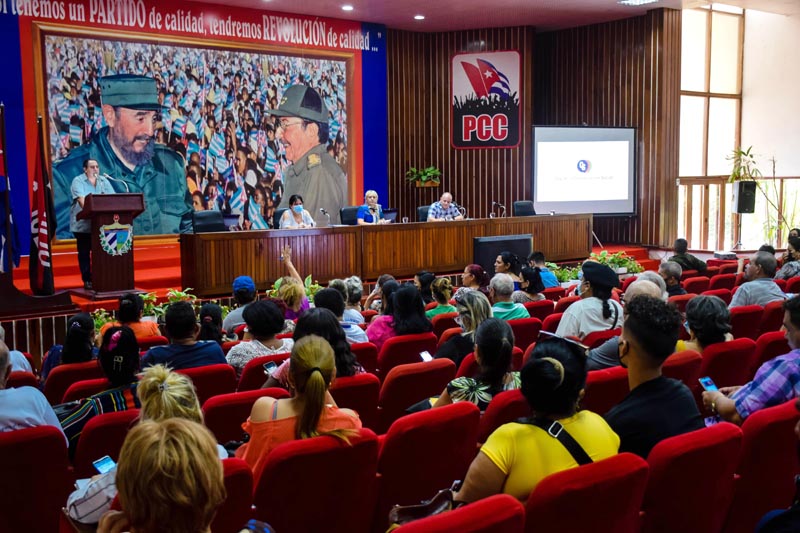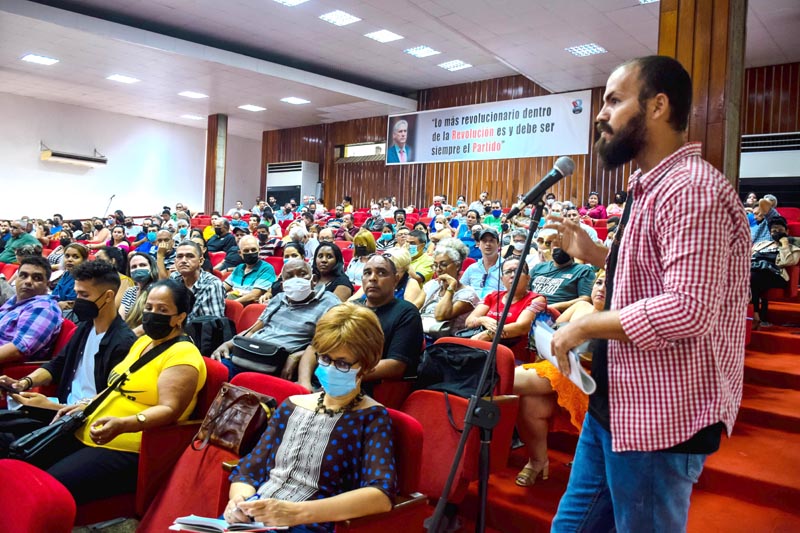Draft bill of the Social Communication Law for debate in Holguín
- Written by Maribel Flamand Sánchez
- Published in Holguin
- Hits: 919
 Photos: Heidi Calderón
Photos: Heidi Calderón
The draft bill of the Social Communication Law was presented on Thursday in Holguín, as part of the open consultation process in the country for citizens to study the text and issue opinions to achieve a successful articulation of the media and institutional communication system, in accordance with the regulations that regulate it.
Leaders of the political organization and the Government in the province and the municipality of Holguín, journalists and institutional communicators participated in the meeting, held at the Celia Sánchez theater of the Provincial Committee of the Party.

It promoted the debate among professionals of the press and communication, officials of cultural institutions, companies, artists and new actors of the economy around the new Law, the result of a long process of investigation and conciliation, based on the precepts of the Constitution.
Onelio Castillo Corderí, vice president of the Cuban Institute of Radio and Television, commented that this document responds to one of the agreements of the Communication Policy of the Cuban State and Government, and is based on the communicational practice of the nation and on policies emanating from the congresses of the Communist Party of Cuba (PCC).
At the legal level, it develops some of the mandates of the Magna Carta, which will make it possible to reaffirm the Communication as a fundamental pillar of the governance processes in the country.
José Enrique Agüero, president of the Cuban Association of Social Communicators (ACCS) branch in Holguín, spoke of the lack and omission of terms which are essential to articulate the law, and that decisively influence the development of social communication, including advertising, propaganda, design, marketing and merchandising.
Among the most interesting and innovative chapters discussed by the Holguín union is the one referring to advertising and sponsorship, as well as the one that alludes to research, development and innovation in social communication.
Criteria were shared that advocate approving and enriching this Law, which also implies new models of communication management and that strengthens citizen participation, especially in communities, and the independence and solidity of the media.
The depth of the assessments, proposals and remarks derived from the debate showed the prior preparation of participants, who agreed that this is a transcendent moment for social communication in the country and its development.
